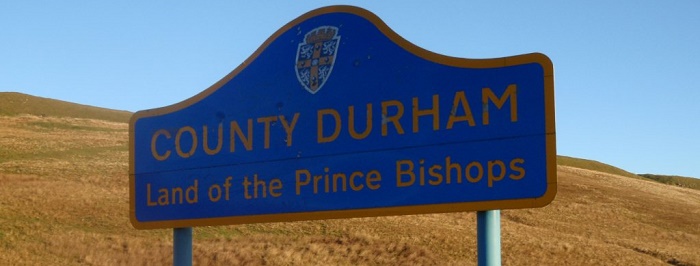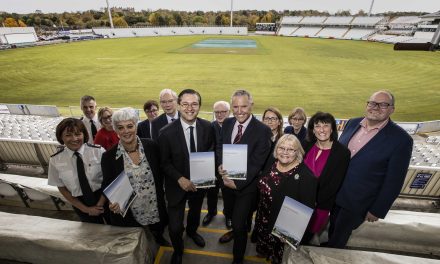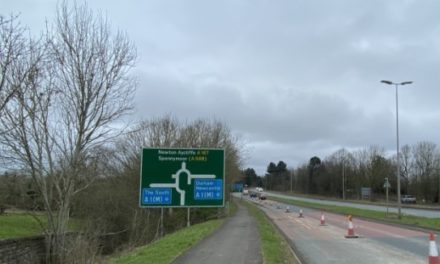- North East England will pilot a new £2.25 million scheme to restructure tourism boards
- Aim is to create one-stop shop to show off the best of region, attract investment and boost local economy
- Scheme will help attract more visitors through new initiatives and target major national and international events and markets
The North East has been selected as the location for a major tourism project which aims to attract more investment, welcome more sporting, business and cultural events, support business growth, create new jobs, and boost domestic and international tourist numbers.
Tourism boards, known as Destination Management Organisations (DMOs), help businesses and visitors find out about an area and often lead the development of the local tourism sector.
But last year’s independent review into DMOs, carried out by Chair of British Tourist Authority, Nick de Bois, found the landscape is overcrowded and fragmented. For example, there are more than 150 DMOs of all shapes and sizes in England which makes it confusing for tourists planning breaks and businesses looking to invest.
To fix this problem and make sure the country is providing tourists with the best service, the government is streamlining DMOs by accrediting the top performing organisations so they can grow the visitor economy and attract major business, cultural and sporting events. The plans were set out earlier this year.
As part of plans to overhaul the current system, NewcastleGateshead Initiative in the North East has been selected to lead a pilot in partnership with Visit Northumberland and Visit County Durham working across seven local authority areas. The partnership will receive £2.25 million to help successfully develop and market the region as a must-visit destination while attracting further private investment and driving growth.
The aim of the partnership model is to extend the tourism season and attract more visitors from across the UK and abroad through initiatives such as the creation of Tour de Yorkshire, following the Tour de France stage in Yorkshire back in 2015, or the Commonwealth Games in Birmingham this summer.
By working in partnership, tourism boards will be able to attract new hotels, develop major attractions such as the Eden Project in Cornwall, build on local heritage and cultural assets through the likes of UNESCO World Heritage bids, grow the food and drink offer and maximise the potential of the region’s natural assets, including its dark skies, beaches and national parks.
Working with the tourism industry and the growing digital cluster, partnerships will also make sure that the tourism offering is fully accessible to all visitors including families and visitors with access needs. For example, NewcastleGateshead Initiative recently worked with tech company Kerckhoffs to capture an immersive experience of Newcastle’s Quayside Market using Eyemmersive technology. The video means that visitors can explore the market virtually and prepare children with special educational needs and disabilities before they experience it in real life.
Tourism Minister Stuart Andrew said:
“From Hadrian’s Wall to Durham Cathedral and the bright lights of Newcastle, the North East has much to offer tourists from around the world, but we want to go further and attract even more visitors.
“We are looking at what more we can do to streamline the way the region’s tourism bodies work together, improve the region’s offer and the way it markets itself.
“With £2.25 million in funding, we hope the North East can be a pioneer for other areas in unlocking its potential and putting its best foot forward.”
VisitEngland Director Andrew Stokes said:
“Congratulations to the North East on being announced as the pilot region for the Destination Development Partnership (DDP).
“The UK Government’s decision to proceed with a pilot approach is a valuable opportunity to prove the DDP concept, demonstrating the benefits that these reforms will have if rolled out nationwide. We will also be able to really measure an element of funding at a regional level to develop tourism and what impact that will have, strengthening the case for future funding.
“We look forward to working with NewcastleGateshead Initiative and Northumberland and Durham tourism boards to develop the DDP pilot, ensuring we have the right infrastructure in place to enable England to continue to be a compelling destination for domestic and international visitors”.
Sarah Green, CEO, NewcastleGateshead Initiative:
“This pilot is an incredible opportunity to unlock our growth potential in the North East, attracting more visitors, reaching new international markets, creating jobs, growing businesses, attracting investment, and reinforcing local pride in our place.
“As the first Destination Development Partnership, we will work with our partners in Visit County Durham and Visit Northumberland to ensure the tourism sector is supported and grows across all seven local authorities in the region. Our region will act as a blueprint for the rest of England, and we could not be prouder to help shape the future landscape of destination management organisations, working in partnership to deliver local economic growth through the visitor economy.
“From Auckland Castle to Alnwick Gardens, from dark skies to sparkly venues, from fish and chips to fine dining – the aim of this partnership is to provide an inclusive welcome for all, attracting more international and domestic visitors with a fantastic regional offer and visitor experience.”
Partnerships should support businesses to create sustainable tourism offers, reduce their carbon footprint and offer consumers opportunities to enjoy themselves whilst minimising their impact on the environment.
Thanks to the new partnerships, tourists will know where to go to find quality, trusted information, tailored to their destination. Going forward, it will also mean that tourism boards can work more effectively with local authorities to explore new initiatives such as travel initiatives that make it seamless for tourists to get around the local area.
Evidence will be collected throughout the pilot to understand how effective the proposed model is and to support any future funding considerations.
If the pilot is successful, the government will look to roll the partnership model out to other regions across England.











